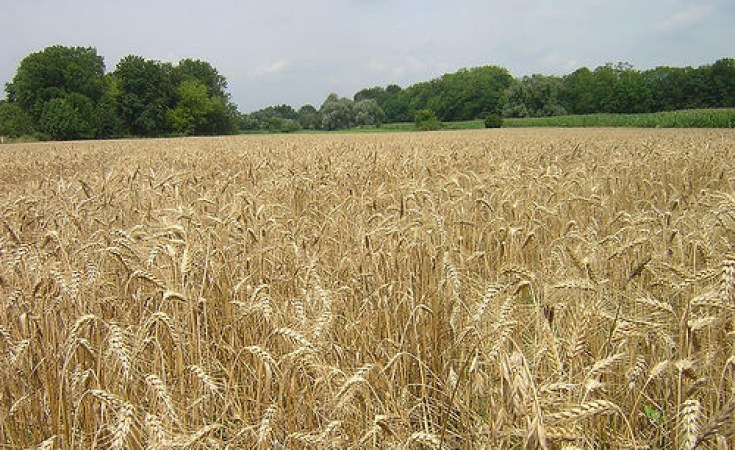In an effort to cover wheat shortages following Russia's invasion of Ukraine, African countries are looking to other sources, or trying to use local-based alternatives in order to provide bread each day. However this is also causing a spike in food prices.
"What is coming immediately is an increase in price, which will have an impact on the government's fiscal budget," says Kibrom Aboy, research fellow and Egypt country head for the International Food Policy Research Institute (IFPRI) in Cairo.
"This means an increase in price on wheat and other products, and has impact on poor households too."
While Egypt has enough wheat until September, the government is trying to source from other places such as India, Argentina, Kazakhstan, and Romania, Aboy says.
Egypt is the world's largest wheat buyer.
While places like Kazakhstan are planting now and can increase their crop size, it won't be able to totally satisfy Egypt's demand.
"In Egypt, the wheat consumption is almost twice the global average," says Aboy, noting that obesity is a problem in Egypt due to eating high-calorie foods, such as bread.
India might be a partial solution to Egypt and a number of other African countries, however, as the US Department of Agriculture noted that India will have a record wheat harvest due to "highly favorable weather conditions."
Banning exports
Egypt, like a number of other countries, has banned exports, including to Yemen, which is suffering from a major food crisis due to insecurity.
"The impact of the shock is likely to have varying impact across different countries on their capacity to absorb these type of shocks," says Aboy.
"What we can expect to see in Yemen is likely to differ from what we expect to see in Egypt and Sudan.
"I think the best solution in this type of crisis is to allow commodities to move freely as much as possible so that the big shock we see in other markets cannot completely disrupt the whole food system."
East Africa woes
Speaking to journalists on Wednesday before the G20 meeting of the bloc's finance chiefs and central bankers, International Monetary Fund head Kristallina Georgieva said the most troubling impact of the Ukraine war for the African continent was the high food prices.
A poor start to the rainy season in the Horn of Africa in addition to the Ukraine war is driving up food prices - some 16 million people are already food insecure in Somalia, Kenya and Ethiopia, and the numbers could rise.
"More than 90 percent of Somalia's wheat flour imports come from Russia and Ukraine and any decline in trade is bound to push the food basket further away from families and children and further compound the impact of the drought," says Mohamud Mohamed Hassan, country director for Save the Children in Somalia.
In the arid and semi-arid regions of Kenya, the aid group says that people are eating only one meal a day, while Ethiopia has had to contend with an ongoing conflict.
In Ethiopia, "pastoralist families have now lost over 1.46 million livestock; this has led to children missing out on milk, their main source of nutrition, with 890,000 children aged under five now suffering from malnutrition," according to a statement from the charity.
West African coups ... and ingenuity
On the other side of the continent, four recent coup d'etats in the Sahel, in addition to the Ukraine wheat gap has broadened food insecurity, says Luca Rosso, the main analyst for the Food and Agriculture Organisation (FAO) in Rome.
Even before the Ukraine war, 25 percent of the population in the region was dealing with food insecurity, says Rosso. The impact of the war is hard to measure, he tells RFI's Olivier Rogez, but it has definitely worsened.
And those fleeing violence and unable to tend their fields adds to the list.
"We are seeing 6-7 million people displaced in the Sahel this year. The upsetting thing is that we are seeing very prolonged displacements; the displaced are, on average, displaced for seven years," he says.
In an effort to combat food insecurity in any way they can, some are turning to alternatives for bread, such as millet, corn, peanut, or moringa.
"Our objective is to reduce the importation of wheat, even if there is no war ... We are trying to incorporate between 20 and 50 percent of locally grown cereals for our bread," Pap Amadou Fall, trainer at Senegal's Bread Training Federation in Dakar tells RFI's Charlotte Idrac.
Millet is a bit more expensive than wheat, but with local alternatives, bakers are hoping that this will alleviate the wheat shortage.


